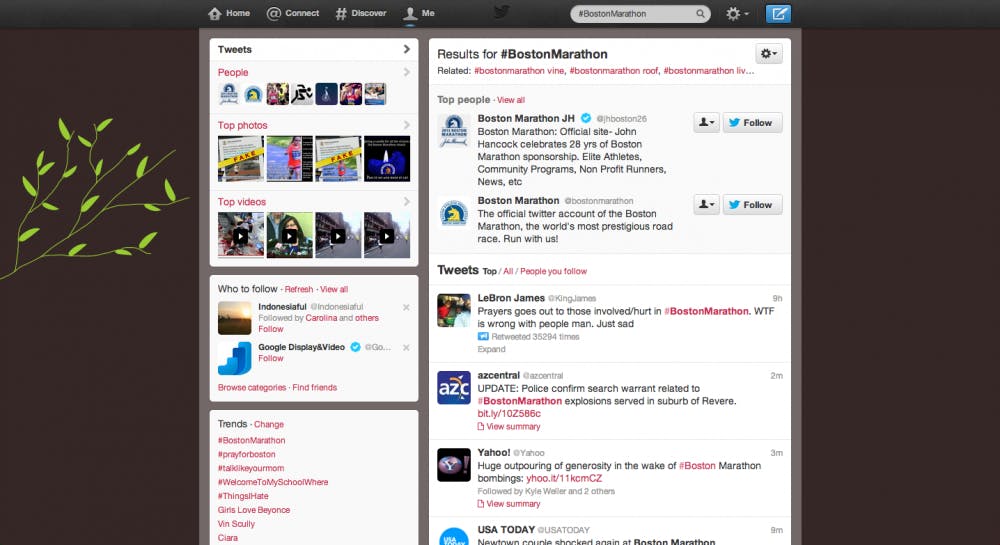Social media. It is what dominates many people’s free time. People share news about their births, post photos from last weekend’s party and tag themselves at the new restaurant down the block. But these instantaneous means of communication do much more than let you brag about your goings on; they make for a prime pipeline of communication in times of emergency. Yesterday was a great example of this with the Boston Marathon bombing.
 Twitter has become a news ticker for the masses. It allows users to share fun events, but it also becomes critical in times of need. Screenshot by Courtland Jeffrey
Twitter has become a news ticker for the masses. It allows users to share fun events, but it also becomes critical in times of need. Screenshot by Courtland JeffreyTelevision or radio used to be that the first place one would hear about tragedies. But with the advent of social media sites like Facebook, Twitter and Google+, the slower information, spreaders got superseded. Today, it is faster for people to pull out their smartphone and load Twitter for their news than it is for them to make their way to a TV and find the news channel. People utilize these websites to get the word out about something immediately, informing the masses about events as they unfold. That was the case with yesterday’s bombing. Runners, spectators and others who had some sort of knowledge were sharing their accounts of the events. We here in Arizona could not have received as much information, as fast as we did, if it had not been for communication on the Internet. For example, the news source CNN tweeted about the bombing from immediately after it happened and are still covering the story today.
Technology offers another aspect of help to this type of situation: it allows for rapid communication between the people that matter to you. Today, when I heard about the bombing, my thoughts immediately jumped to my close friend who is studying at Tufts University in Boston. With services like Facebook and other instant messengers, I could get a hold of him and hear back in seconds (luckily, I did not have to because he posted right away that he was safe). Having this right at our fingertips can quickly put many relatives’ minds at ease.
Of course, with this sort of speed and utility, there are downsides. People could pass around misinformation, like when people were speculating if the fire at the JFK Library was a bomb, which some took as fact. The other major issue is the communication setup; if you do not immediately respond to relatives and friends, they will jump to the conclusion that something bad may have happened. Overall, if the public is diligent about their usage of technology in emergency events, the positive aspects outweigh the drawbacks. Technology has come a long way in helping us in times of need and it is incredible to recognize it. Hopefully, one day, it will prevent such atrocities from occurring in the first place.
If you have any questions or comments, email me at cejeffre@asu.edu and follow me on Twitter @Court_Jeffrey. Enjoy!




